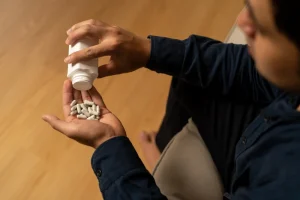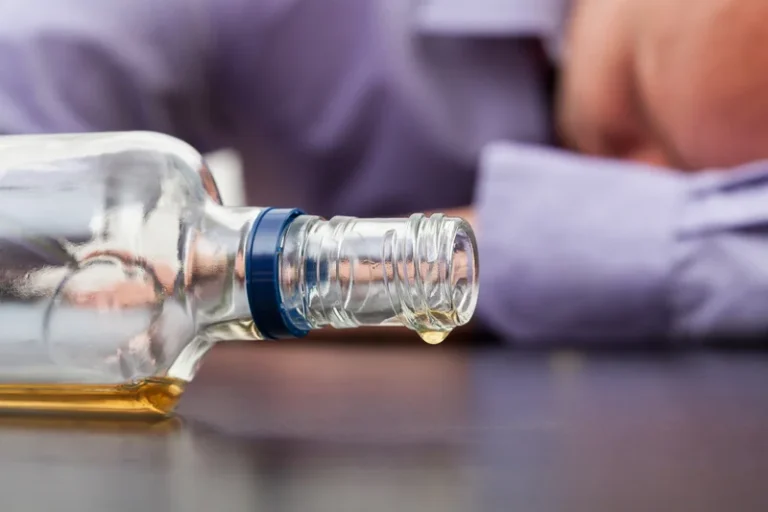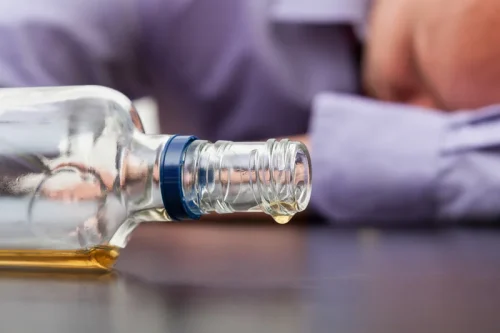
You may also choose to share your diagnosis with supportive family and friends—you don’t have to navigate your condition alone. Abstinence of up to one year is linked with improved attention, working memory, and problem-solving abilities. However, learning and short-term memory impairments may be more difficult to reverse even with abstinence. The life expectancy of people with ARD varies, and more research is needed in this area.
- Muscle mass is 70–75% water, while water in fat tissue can vary between 10 and 40% (25).
- The desire to drink may cease before achieving water balance (13), however plasma osmolality will remain elevated and thirst sensations may return until water homeostasis is achieved (12,43).
- Complete amnesia, often spanning hours, is known as an “en bloc” blackout.
- Respiratory water loss averages 250–350mL/d in sedentary adults; however, physical activity can increase losses to about 600mL/d (19,25).
How Does Alcohol Affect Your Brain?
This could happen if someone drinks on an empty stomach or consumes large amounts of alcohol in a short amount of time. Because females, on average, weigh less than males and, pound for pound, have less water in their bodies, they tend to reach higher peak BAC levels than males with each drink and do so more quickly. This helps explain why being female appears to be a risk factor for having blackouts. According to the National Council on Alcoholism and Drug Dependence, females are at particular risk for blackouts. This is because females tend to weigh less than males and have less water in their bodies to dilute alcohol levels. They also have less of an enzyme called alcohol dehydrogenase in the gut that breaks down a small percentage of alcohol before it even gets into the body.
- Retrospective memory is remembering all events and episodes that have happened in our lifetime.
- People report driving cars, having unprotected sex, vandalizing property, getting into fights and abusing illicit drugs when blacked out.
- They may also ask you to complete a questionnaire about symptoms related to your memory and cognitive abilities.
- Increased blood osmolality and angiotensin II stimulates the hypothalamus and arginine vasopressin (AVP) is released, promoting renal water retention and reduced urinary output.
- When the body’s alcohol level rises too high too fast, memory functions are impaired.
Preventing an Alcohol Blackout
- It involves the deterioration of the corpus callosum, the major fiber tract that connects the brain’s two hemispheres.
- They may not remember how much they have consumed, so they continue drinking excessively.
- This amount of dehydration equates to about 1½-3 lbs of body weight loss for a 150 lb person, which could occur through routine daily activities (4).
- Some people experience what doctors call a blackout when they drink too much alcohol and don’t remember key details.
- This seemingly aware state can make it difficult for other people to recognize if a person is in a blackout.
- Prompt treatment with thiamine (vitamin B1) for people with Wernicke encephalopathy can potentially prevent or lessen the development of Wernicke-Korsakoff syndrome.
When you consume alcohol, it’s absorbed into your bloodstream from the stomach and the small intestine. Researchers have not determined if this is caused by the effects of alcohol on the brain or is the result of thiamine deficiency. The day after the drunken memory trial, the researchers called to check in on their subjects. For instance, those prone to blackouts showed decreased activity in parts of the brain responsible for turning experiences into memories and those involved with attention and cognitive functioning. Psychiatrist and addiction specialist David Streem, MD, discusses how alcohol and substance use aren’t the only pathways to memory loss and shares what’s really happening when you’re blacked out.
National Institute on Alcohol Abuse and Alcoholism (NIAAA)
The brains of participants who were drinking three units of alcohol a day over the previous month had reductions in both white and gray matter, making their brains appear three and a half years older. For reference, one unit is considered a half pint of beer or a small glass of wine. Depending on who you ask, you might be told to drink a few glasses of red wine ptsd blackouts a day or to avoid alcohol altogether. The reasons for such recommendations are many, but, by and large, they tend to stem from a study someone read about or saw reported in the news.


So, if you drink before the age of 14, there’s about a 50% chance you’re going to develop an alcohol use disorder in your adulthood,” explains Dr. Anand. “Generally, over time, there have been new studies that show that chronic alcohol use — at very heavy use — can lead to brain damage, both gray and white matter. It can cause brain atrophy and shrink your brain over time,” shares Dr. Anand. In addition to abstaining from alcohol, moderation and pace are important to preventing blackouts. Avoid binge drinking, which is defined as consuming five or more drinks in about two hours for men, or four or more drinks for women. Hydration refers to having adequate fluid within body tissues, and it can be determined through a variety of methods.

